Inspired by biological cells, the robots are made of water encased in Teflon armor and are each about the size of a grain of rice.
Category: biological – Page 31
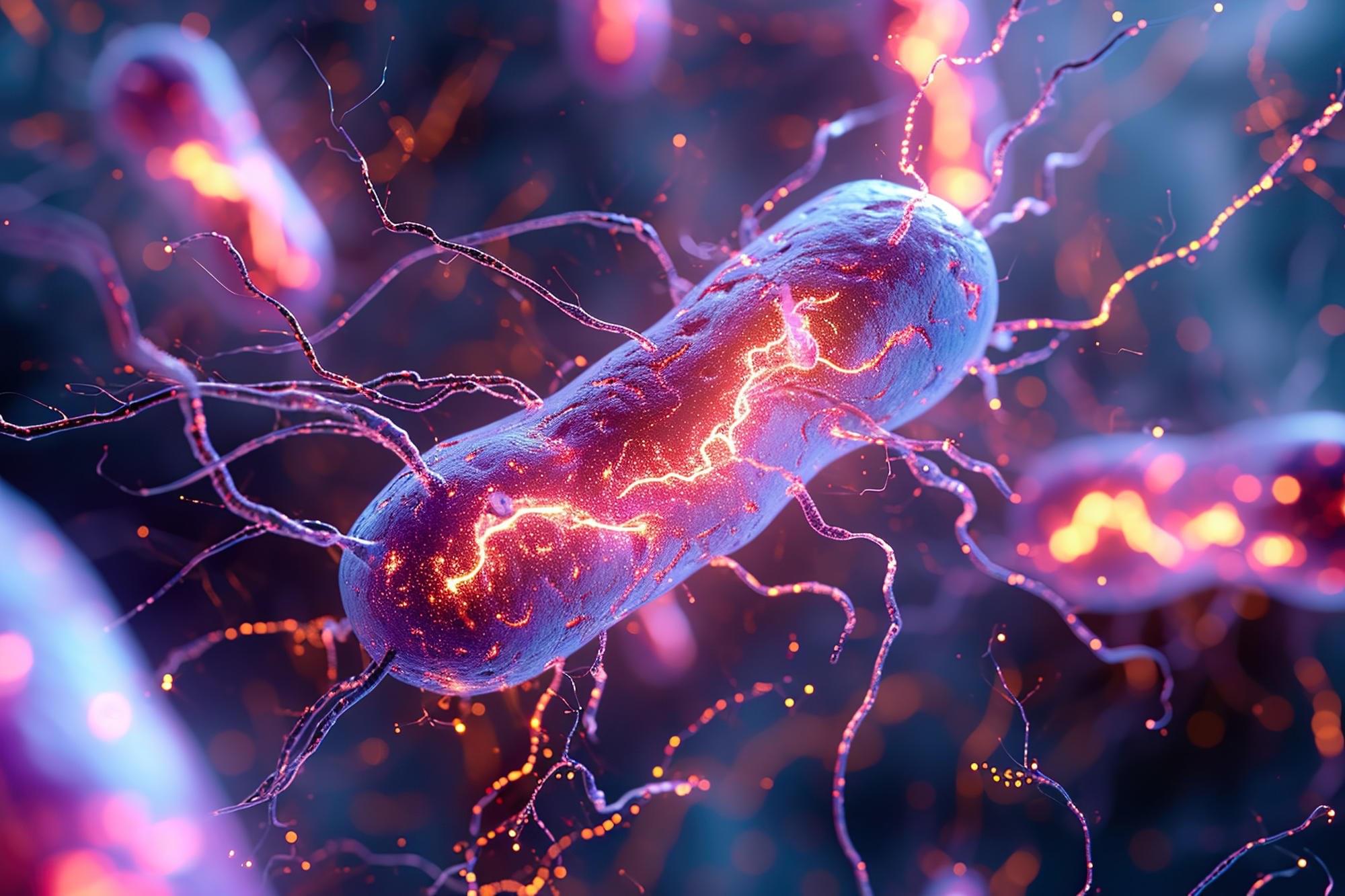
Unknown microorganisms used marble and limestone as a habitat
In the desert areas of Namibia, Oman, and Saudi Arabia, research work has revealed unusual structures that are probably due to the activity of an unknown microbiological life form. Unusually small burrows, i.e., tiny tubes that run through the rock in a parallel arrangement from top to bottom, were discovered in marble and limestone of these desert regions. “We were surprised because these tubes are clearly not the result of a geological process,” said Professor Cees Passchier from Johannes Gutenberg University Mainz (JGU), who first came across the phenomenon during geological field work in Namibia. During subsequent sample investigations, evidence of biological material was found. Evidently, microorganisms had perforated the rock. “We don’t currently know whether this is a life form that has become extinct or is still alive somewhere,” added Passchier.
Puzzling discovery in Namibia
Geologist Cees Passchier has been working in Namibia for 25 years, among other places. His research focuses on the geological reconstruction of Precambrian terranes. “We look at the structure of the rocks to find out how continents came together to form the supercontinent Gondwana 500 to 600 million years ago,” explained Passchier. At that time, carbonate deposits formed in the ancient oceans and turned into marble due to pressure and heat. “We noticed strange structures in this marble that were not the result of geological events.” Instead of smooth erosion surfaces, tubes could be seen that were about half a millimeter wide and up to three centimeters long, lined up parallel to one another and forming bands up to ten meters long. Some calcrete crusts had formed on the edges.
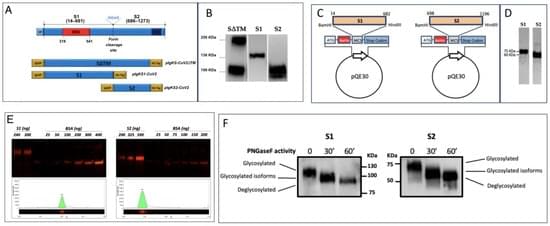
New Monoclonal Antibodies Specific for Different Epitopes of the Spike Protein of SARS-CoV-2 and Its Major Variants: Additional Tools for a More Specific COVID-19 Diagnosis
The emergence of the new pathogen SARS-CoV-2 determined a rapid need for monoclonal antibodies (mAbs) to detect the virus in biological fluids as a rapid tool to identify infected individuals to be treated or quarantined. The majority of commercially available antigenic tests for SARS-CoV-2 rely on the detection of N antigen in biologic fluid using anti-N antibodies, and their capacity to specifically identify subjects infected by SARS-CoV-2 is questionable due to several structural analogies among the N proteins of different coronaviruses. In order to produce new specific antibodies, BALB/c mice were immunized three times at 20-day intervals with a recombinant spike (S) protein. The procedure used was highly efficient, and 40 different specific mAbs were isolated, purified and characterized, with 13 ultimately being selected for their specificity and lack of cross reactivity with other human coronaviruses. The specific epitopes recognized by the selected mAbs were identified through a peptide library and/or by recombinant fragments of the S protein. In particular, the selected mAbs recognized different linear epitopes along the S1, excluding the receptor binding domain, and along the S2 subunits of the S protein of SARS-CoV-2 and its major variants of concern. We identified combinations of anti-S mAbs suitable for use in ELISA or rapid diagnostic tests, with the highest sensitivity and specificity coming from proof-of-concept tests using recombinant antigens, SARS-CoV-2 or biological fluids from infected individuals, that represent important additional tools for the diagnosis of COVID-19.
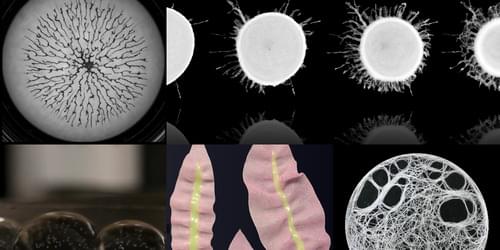
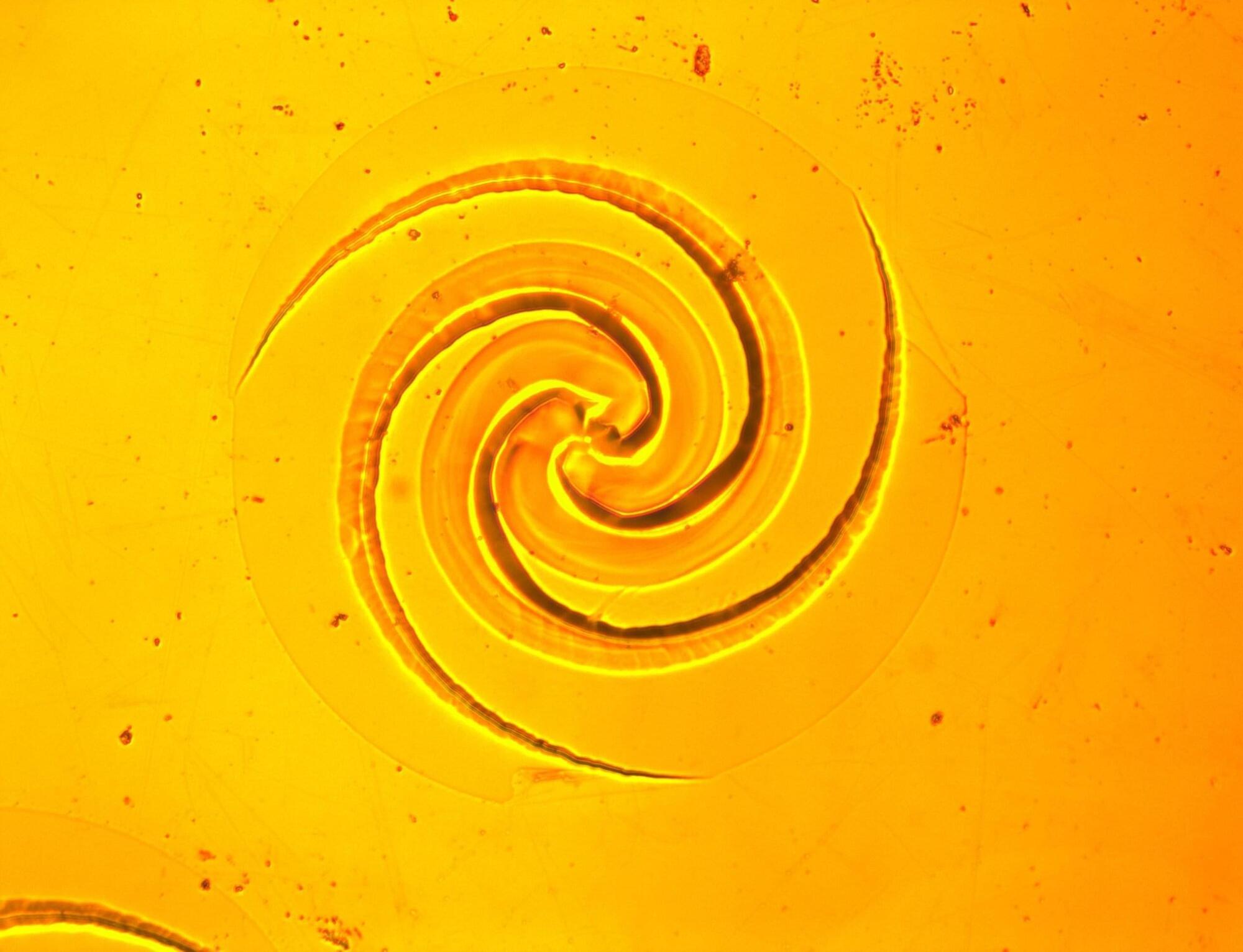
Never-Before-Seen: UCLA Physicists Discover Mysterious Spiral Patterns on Solid Surfaces
A curiosity about tiny dots on a germanium wafer with metal films led to the discovery of intricate spiral patterns etched by a chemical reaction. Further experiments revealed that these patterns emerge from chemical reactions interacting with mechanical forces through a deforming catalyst. This breakthrough marks the most significant advance in studying chemical pattern formation since the 1950s. Understanding these complex systems could shed light on natural processes like crack formation in materials and the effects of stress on biological growth.
University of California, Los Angeles doctoral student Yilin Wong noticed tiny dots appearing on one of her samples, which had been accidentally left out overnight. The layered sample consisted of a germanium wafer topped with evaporated metal films in contact with a drop of water. On a whim, she examined the dots under a microscope and couldn’t believe her eyes. Beautiful spiral patterns had been etched into the germanium surface by a chemical reaction.
Wong’s curiosity led her on a journey of discovery, revealing something never seen before: hundreds of nearly identical spiral patterns spontaneously forming on a centimeter-square germanium chip. Even more remarkably, small changes in experimental parameters, such as the thickness of the metal film, produced different patterns, including Archimedean spirals, logarithmic spirals, lotus flower shapes, radially symmetric patterns, and more.

MicroVQA: A Multimodal Reasoning Benchmark for Microscopy-Based Scientific Research
📣Just announced at [#GTC25](https://www.facebook.com/hashtag/gtc25?__eep__=6&__cft__[0]=AZXGE68SvdjQyRxtqhq57u6xDScMuziTjPrrOj7ic9_n1QMWssMuQdAZ4MLZmg3kpo3u92u-w_Z12HEaFeSJnvxJ_h_dNAloE8I86x4WxG8730kGwR10dtKo0yYVmS4GQdeMF0xu2E5mpp8VTUcHoNIO&__tn__=*NK-R): NVIDIA will be open-sourcing cuOpt, an AI-powered decision optimization engine.
➡️ [ https://nvda.ws/43REYuW](https://nvda.ws/43REYuW open-sourcing this powerful solver, developers can harness real-time optimization at an unprecedented scale for free.
The best-known AI applications are all about predictions — whether forecasting weather or generating the next word in a sentence. But prediction is only half the challenge. The real power comes from acting on information in real time.
That’s where cuOpt comes in.
CuOpt dynamically evaluates billions of variables — inventory levels, factory output, shipping delays, fuel costs, risk factors and regulations — and delivers the best move in near real time.
Unlike traditional optimization methods that navigate solution spaces sequentially or with limited parallelism, cuOpt taps into GPU acceleration to evaluate millions of possibilities simultaneously — finding optimal solutions exponentially faster for specific instances.
It doesn’t replace existing techniques — it enhances them. By working alongside traditional solvers, cuOpt rapidly identifies high-quality solutions, helping CPU-based models discard bad paths faster.
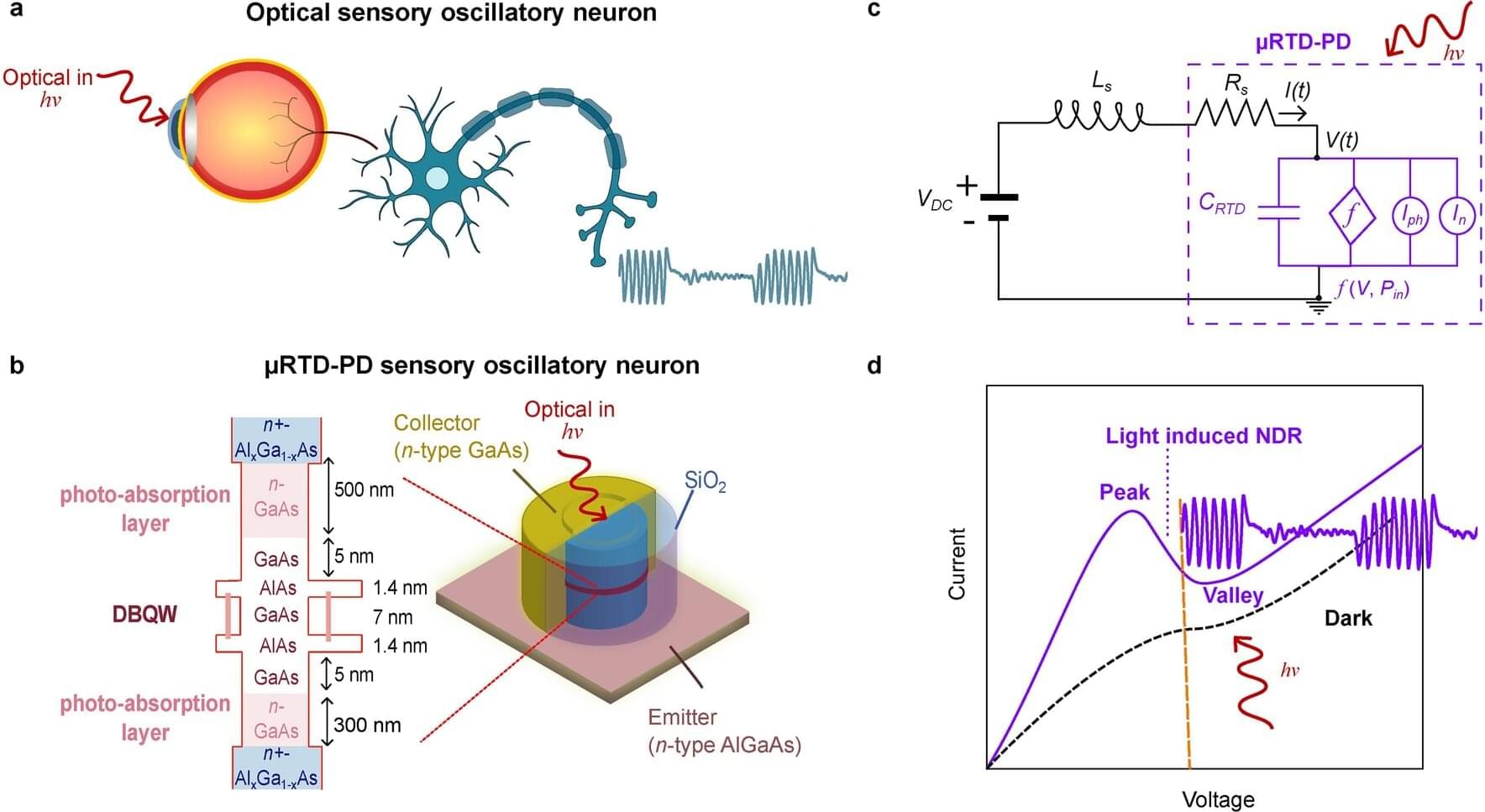
Light-powered artificial neurons mimic brain-like oscillations
International Iberian Nanotechnology Laboratory (INL) researchers have developed a neuromorphic photonic semiconductor neuron capable of processing optical information through self-sustained oscillations. Exploring the use of light to control negative differential resistance (NDR) in a micropillar quantum resonant tunneling diode (RTD), the research indicates that this approach could lead to highly efficient light-driven neuromorphic computing systems.
Neuromorphic computing seeks to replicate the information-processing capabilities of biological neural networks. Neurons in biological systems rely on rhythmic burst firing for sensory encoding, pattern recognition, and network synchronization, functions that depend on oscillatory activity for signal transmission and processing.
Existing neuromorphic approaches replicate these processes using electrical, mechanical, or thermal stimuli, but optical-based systems offer advantages in speed, energy efficiency, and miniaturization. While previous research has demonstrated photonic synapses and artificial afferent nerves, these implementations require additional circuits that increase power consumption and complexity.
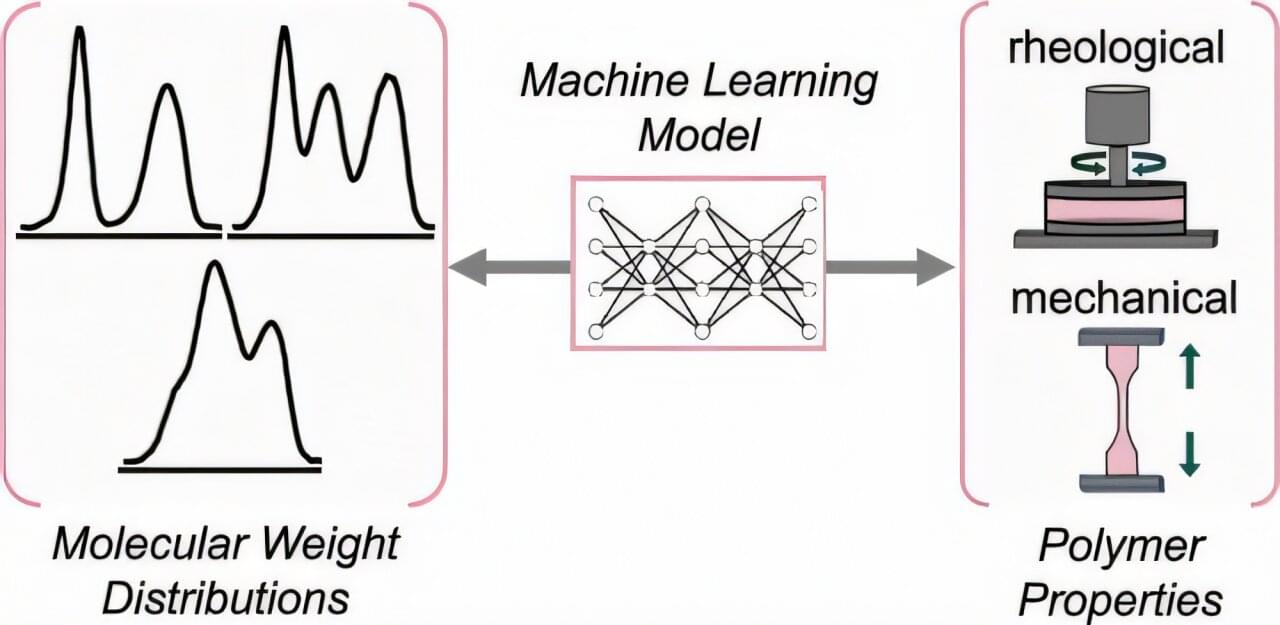
Machine learning enables customized plastics that could reduce environmental impact
About 100 million metric tons of high-density polyethylene (HDPE), one of the world’s most commonly used plastics, are produced annually, using more than 15 times the energy needed to power New York City for a year and adding enormous amounts of plastic waste to landfills and oceans.
Cornell chemistry researchers have found ways to reduce the environmental impact of this ubiquitous polymer —found in milk jugs, shampoo bottles, playground equipment and many other things—by developing a machine-learning model that enables manufacturers to customize and improve HDPE materials, decreasing the amount of material needed for various applications. It can also be used to boost the quality of recycled HDPE to rival new, making recycling a more practical process.
“Implementation of this approach will facilitate the design of next-generation commodity materials and enable more efficient polymer recycling, lowering the overall impact of HDPE on the environment,” said Robert DiStasio Jr., associate professor of chemistry and chemical biology in the College of Arts and Sciences (A&S).
James Fodor — Exploring the Frontiers of Computational Neuroscience
James Fodor discusses what he is researching, mind uploading etc.
As of 2020, James Fodor, is a student at the Australian National University, in Canberra, Australia. James’ studies at university have been rather diverse, and have at different times included history, politics, economics, philosophy, mathematics, computer science, physics, chemistry, and biology. Eventually he hopes to complete a PhD in the field of computational neuroscience.
James also have a deep interest in philosophy, history, and religion, which he periodically writes about on his blog, which is called The Godless Theist. In addition, James also has interests in and varying levels of involved in skeptical/atheist activism, effective altruism, and transhumanism/emerging technologies. James is a fan of most things sci-fi, including Star Trek, Dr Who, and authors such as Arthur C. Clarke and Isaac Asimov.
Many thanks for watching!
Consider supporting SciFuture by:
a) Subscribing to the SciFuture YouTube channel: http://youtube.com/subscription_center?add_user=TheRationalFuture b) Donating.
- Bitcoin: 1BxusYmpynJsH4i8681aBuw9ZTxbKoUi22
- Ethereum: 0xd46a6e88c4fe179d04464caf42626d0c9cab1c6b.
- Patreon: https://www.patreon.com/scifuture c) Sharing the media SciFuture creates: http://scifuture.org.
Kind regards.